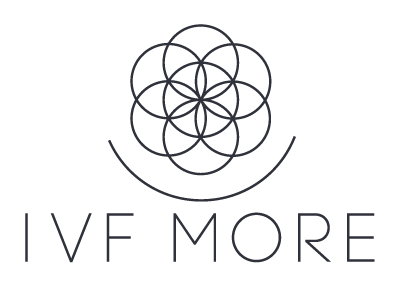Top 5 Lifestyle Habits That Boost Egg Quality Backed by Science
October 2025

Introduction
Egg quality plays a crucial role in fertility, especially as women age. While age is a natural factor that affects reproductive potential, research shows that lifestyle choices can significantly influence egg health. From nutrition to stress management, certain habits may help support the viability and development of eggs, potentially improving the chances of having a baby in your home.
In this article, we’ll explore the top 5 science-backed lifestyle habits that boost egg quality, explain why they matter, and provide practical tips for integrating them into your daily routine.
1. Prioritize a Balanced and Nutrient-Rich Diet
One of the most important factors influencing egg quality is nutrition. Eating a diet rich in vitamins, minerals, and antioxidants helps support cellular health, hormone balance, and overall reproductive function.
- Include Antioxidant-Rich Foods: Vitamins C and E, selenium, and beta-carotene protect eggs from oxidative stress, which can damage DNA and reduce egg quality. Foods like berries, leafy greens, nuts, and seeds are excellent sources.
- Focus on Healthy Fats: Omega-3 fatty acids, found in fatty fish, chia seeds, and walnuts, support hormone production and improve blood flow to the ovaries. Avoid trans fats and excessive saturated fats, as they may negatively affect fertility.
- Maintain Adequate Protein Intake: Protein from both plant and animal sources helps regulate hormone levels and supports reproductive health. Incorporate legumes, eggs, lean meats, and dairy into your meals.
- Stay Hydrated: Proper hydration is essential for all cellular functions, including the health of eggs. Aim for at least 1.5–2 liters of water per day, depending on activity level.
Why it matters:
Studies indicate that women with diets high in antioxidants and healthy fats have better egg quality and improved fertility outcomes, including higher success rates in IVF treatments.
2. Maintain a Healthy Weight
Body weight and fat distribution play a critical role in reproductive hormones and ovulatory function. Being underweight or overweight can disrupt the hormonal balance necessary for healthy eggs.
- BMI and Fertility: Maintaining a body mass index (BMI) within the healthy range (18.5–24.9) is associated with better egg quality and improved fertility.
- Effects of Obesity: Excess body fat can increase insulin resistance and inflammation, which may negatively impact the ovarian environment and egg quality.
- Effects of Being Underweight: Low body weight can lead to irregular menstrual cycles, anovulation, and lower estrogen levels, affecting egg health.
Practical tips:
- Aim for gradual, sustainable weight changes through a combination of nutrition and exercise.
- Consult a healthcare professional or nutritionist for personalized guidance.
Why it matters:
Research consistently shows that women with a healthy weight tend to have higher quality eggs and improved IVF outcomes, while extreme weight deviations can reduce reproductive potential.
3. Exercise Smartly
Exercise is important for overall health, but the type and intensity can impact fertility and egg quality. Moderate, consistent physical activity is recommended, while excessive high-intensity training may have adverse effects.
- Recommended Activities: Walking, swimming, yoga, Pilates, and light strength training can improve circulation, hormone regulation, and stress reduction without overtaxing the body.
- Avoid Overtraining: Intense exercise for long periods may lead to hormonal imbalances, irregular cycles, and lower egg quality.
- Mind-Body Practices: Incorporating yoga or meditation can further reduce stress hormones like cortisol, which are known to affect ovulation and egg health.
Why it matters:
Studies have found that women who engage in moderate exercise have improved blood flow to the ovaries, reduced oxidative stress, and better reproductive outcomes compared to sedentary individuals or those who overtrain.
4. Reduce Exposure to Environmental Toxins
Eggs are highly sensitive to environmental toxins, which can affect DNA integrity and overall reproductive health. Limiting exposure is essential for maintaining healthy egg quality.
- Avoid Endocrine Disruptors: Chemicals found in plastics (BPA), pesticides, and certain cosmetics can interfere with hormone function. Use BPA-free containers and choose organic or minimally processed foods when possible.
- Limit Alcohol and Tobacco: Both alcohol and smoking are linked to reduced egg quality and ovarian reserve. Even moderate consumption can negatively affect fertility.
- Be Mindful of Medications and Supplements: Consult your doctor before starting or stopping medications or supplements, as some can impact reproductive health.
Why it matters:
Research highlights that minimizing exposure to toxins improves cellular health in eggs, supporting better embryo development and IVF outcomes.
5. Manage Stress and Prioritize Sleep
Chronic stress and poor sleep can significantly impact reproductive hormones, ovulation, and egg quality. Supporting mental and physical well-being is essential for fertility.
- Stress Reduction Techniques: Meditation, mindfulness, deep breathing exercises, and hobbies can help lower cortisol levels, which may interfere with ovulation and reproductive function.
- Prioritize Sleep: Aim for 7–9 hours of quality sleep per night. Poor sleep disrupts hormone balance, including estrogen and progesterone, which are critical for egg health.
- Social Support: Surround yourself with supportive friends, family, or fertility support groups to reduce emotional strain during your fertility journey.
Why it matters:
Studies show that women with lower stress levels and adequate sleep have improved hormone regulation, better egg quality, and higher success rates in assisted reproductive treatments.
Additional Tips to Support Egg Health
While these five lifestyle habits have strong scientific backing, combining them with other strategies can further enhance egg quality:
- Regular Fertility Check-Ups: Early evaluation can identify potential challenges and help personalize your approach to optimize reproductive health.
- Supplements and Micronutrients: Some vitamins and supplements, like CoQ10, folate, vitamin D, and omega-3s, are associated with improved egg quality. Always consult a doctor before starting supplementation.
- Avoid Excess Caffeine: High caffeine intake may negatively affect fertility. Moderate consumption (1–2 cups per day) is generally considered safe.
Conclusion
Egg quality is influenced by many factors, including age, genetics, and lifestyle choices. While age naturally affects fertility, adopting healthy habits can play a significant role in supporting egg health and overall reproductive potential. By focusing on nutrition, maintaining a healthy weight, exercising smartly, avoiding toxins, and managing stress, women can improve their chances of achieving a successful pregnancy and having a baby in their home.
Even small, consistent changes can make a meaningful difference. Integrating these habits into your daily routine, combined with modern fertility treatments when needed, gives you the best possible foundation for reproductive health.
If you’re looking for personalized guidance on improving egg quality or exploring fertility treatments, contact IVF MORE® specialists at Ingenes today. Our team can help you understand your options and support you on your journey to having a baby in your home.
